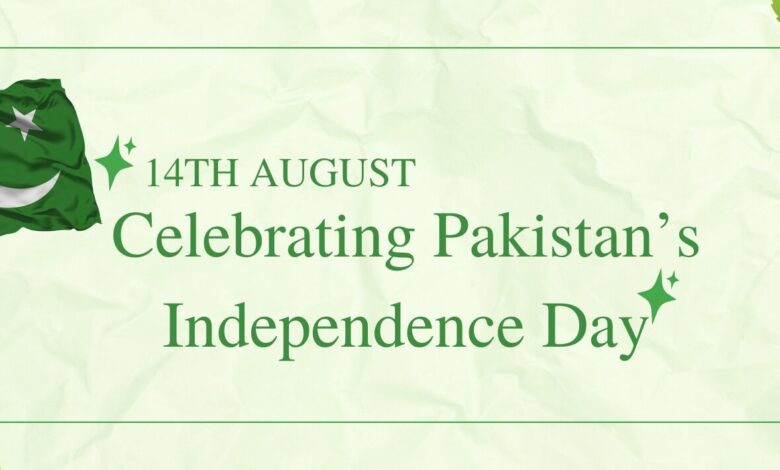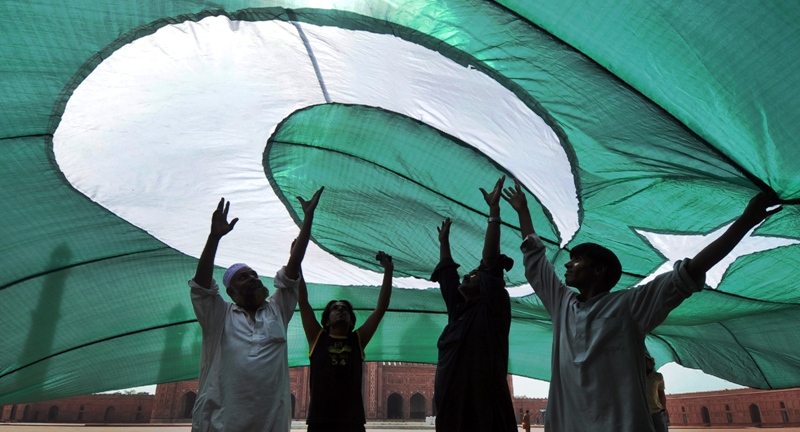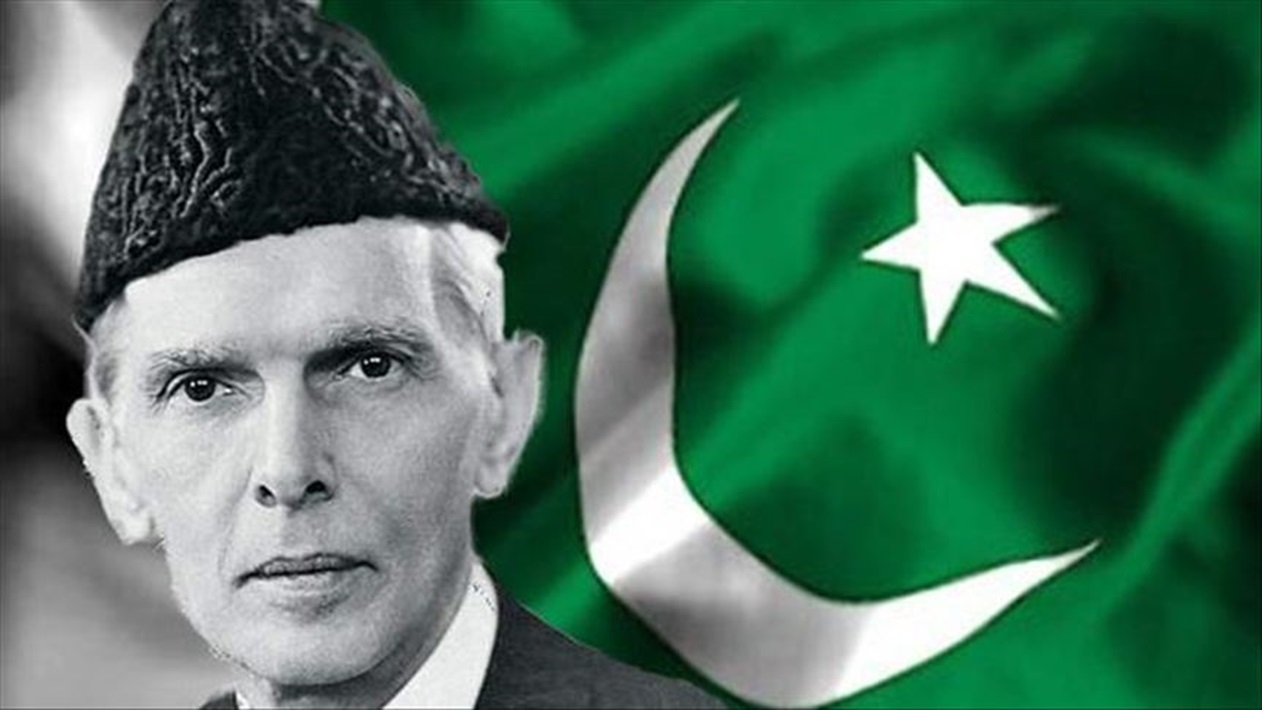Celebrating Pakistan Independence Day 14th August

Pakistanis throughout the globe unite annually on the 14th of August to commemorate Pakistan Independence Day. This day represents Pakistan’s origination as a self-governing country in 1947 following a vigorous struggle under the stewardship of Muhammad Ali Jinnah, among other notable leaders.
The formation of Pakistan was changed South Asia’s political map and provided millions of Muslims with a wonderful place where they could freely live their lives based on their religion and culture.
Historical Significance of Pakistan Independence Day
The history of Pakistan’s fight for independence is deeply connected to the wider struggle for freedom from British colonialism in India. After years of political talks, popular protests, and the intense desire for a separate Islamic state; Britain eventually gave in to demands for Indian partition. Pakistan was born on the 14th of August, 1947, as a nation that had two parts; West Pakistan (now Pakistan) and East Pakistan (now Bangladesh).
National Celebrations of Pakistan
Pakistan Independence Day is observed through various celebrations that display the nation’s pride and love of the country. The day begins with special prayers for the progress, peace, and prosperity of the country. This is followed by hoisting the national flag on all government buildings, private institutions, and houses showing that Pakistanis are united and resilient.
The official celebration starts with a grand flag-hoisting ceremony at the Presidential Palace in Islamabad, where it is attended by several people including many leading personalities like the President and Prime Minister. It is usually done after this event which includes the singing of a national anthem, speeches as well a parade by its soldiers, who showcase its military power and cultural diversity.
All over the country throughout the day several activities take place such as cultural shows, exhibitions, sports competitions, or music concerts. The night sky turns into a magical spectacle with fireworks lighting up streets and buildings covered in lights creating a festive mood. Schools and colleges have special events where students present patriotic songs, dances, and dramas about independence struggles emphasizing unity plus nation-building.

Reflection and Resolve
Though the Day of Independence is a time of jubilation, it also requires a bit of reflection. This reminds Pakistanis about the many struggles that their country has gone through since its inception as well as ongoing efforts in building a stronger and more prosperous nation. From economic trials in its early days to political instability challenges, Pakistan has come far. However, the journey towards advancement and progress goes on.
On this day, they pledge once again to the principles laid down by the Father of their Nation. They recall the significance of Unity, Faith & Discipline which were guiding principles for Mohammad Ali Jinnah (Father of the Nation). The day also signifies appreciation for all Pakistani citizens who are relentlessly working in varied fields contributing to national growth and development.
Global Celebrations
Looking to the Future
There is a united hope and will to overcome the difficulties ahead as Pakistan celebrates its years of independence. The nation still seeks economic stability, social justice, and regional peace. The youthful members make up much of the population of Pakistan hence they significantly influence its future. For that reason, their energy, creativity, and ability to bounce back from setbacks are the main drivers for Pakistan’s yearnings for progress and prosperity.
Lastly 14th August is more than just another day for Pakistanis. It is a day of pride, joy, assessment, remembrance, hope and possibilities. Every time this flag flies in the air with green representing Muslims while white Christians living in this country are included reminds us again about the spirit that has kept us moving on despite all the odds against us carried by it. Happy Independence Day Pakistan
Common Questions on Pakistan Independence Day
What is Pakistan’s Independence Day?
Pakistan commemorates its national freedom on the fourteenth of August. Pakistan became a sovereign state and gained independence from British colonial rule on this day in 1947.
Why is Pakistan Independence Day celebrated on August 14th?
August, 14th has been selected as this was the day when Pakistan declared itself to be an independent nation after the end of British colonialism in the Indian subcontinent.
Which important events led to the independence of Pakistan?
Muslims’ long struggle against British India led by the All India Muslim League led by Muhammad Ali Jinnah resulted in this. The Two-Nation theory that Muslims and Hindus were different nations that required separate homelands was the basis for Muslim demand for a separate nation.
Who was responsible for independence in Pakistan?
Muhammad Ali Jinnah famously known as “Father of Nation,” founded the state of Pakistan, and played a key role in its creation. His vision and leadership contributed to the formation of today`s modern-day country Pakistan.
What does the word ‘significance’ mean in context with THE PAKISTAN RESOLUTION?
The Lahore Resolution also known as the Pakistani Resolution passed on March 23rd, 1940 is a political statement calling for the creation of autonomous regions within northwestern and eastern zones in India. Its provisions lay down a platform upon which an independent Pakistani state can be built upon.
How do they commemorate Pakistanis` independence?
Pakistan celebrates its Independence Day with great fervor all over the country. It starts with flag-hoisting ceremonies at government offices, schools, and public places like parks, etc. Parades are commonplace; people also use fireworks while speeches are being made. People used flags to decorate their homes, surrounded by lights while anthems could be heard being sung everywhere during the whole day.
What does it denote whenever you see the national flag of Pakistan?
The greenish color on the national flag of Pakistan is meant to show that it is a Muslim-majority country whereas the white stripe represents other religious communities. The moon and star on the flag are traditional symbols associated with Islam which reflect Pakistan’s Islamic character.
What were the problems faced by Pakistan after becoming independent?
After independence, Pakistan had to face some difficult challenges such as the distribution of assets between India and Pakistan, mass migration of people from one place to another, violence among communities, and the establishment of a new government and infrastructure for the nation.
How did Pakistan’s boundaries start being demarcated?
Pakistan`s borders were drawn by the Radcliffe Line named after Sir Cyril Radcliffe who was mandated to set out borderlines between India and Pakistan. Demarcation was done depending on religious affiliations hence giving birth to West Pakistan (now known as Pakistan) and East Bengal (currently Bangladesh).
Why is Quaid-e-Azam Muhammad Ali Jinnah referred to as the Father of the Nation?
Mohammad Ali Jinnah is called the ‘Father of Nation’ because he played an instrumental role in the creation of the modern-day state of Pakistan. His vision; and leadership skills were fundamental in getting independence for the Muslim-majority area of British India.
Any quotes made by Muhammad Ali Jinnah about freedom?
Some famous quotes by Muhammad Ali Jinnah include
- No power on earth can undo Pakistan
- With faith, discipline, and devotion there’s nothing worthwhile you can’t achieve.
- You are free; you can go to your temples, you can go to your mosques or any other place of worship in this State of Pakistan. It does not matter which religion, caste, or creed you belong to.




